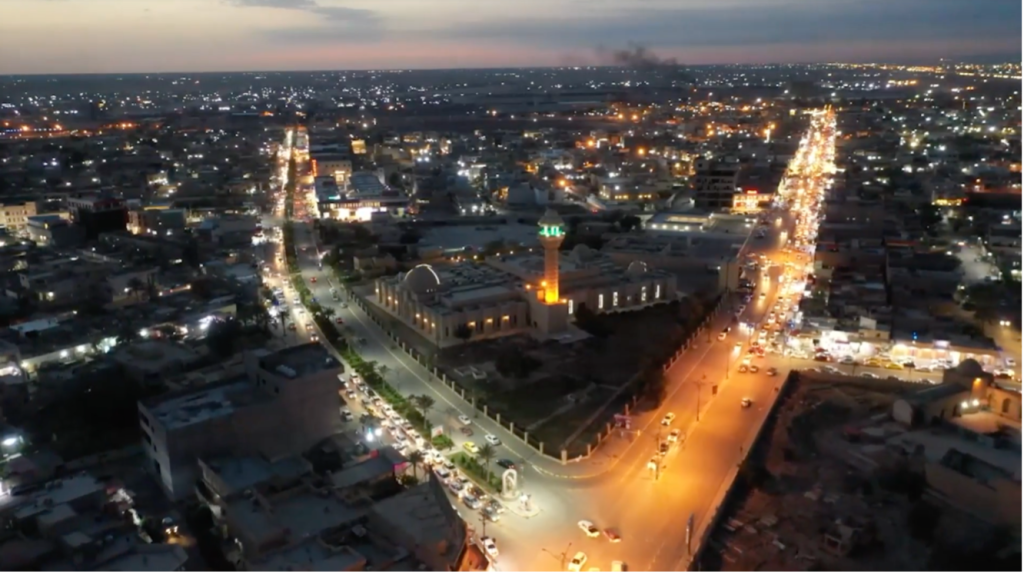The Government of Iraq (GoI) and the Iraqi Security Forces (ISF) have worked tirelessly to support the safe return of internally displaced persons (IDPs) since the 2017 territorial defeat of Daesh in Iraq. Yet this initiative is not without its challenges; among the numerous difficulties facing the more than five million IDPs displaced during Daesh’s reign of terror is the lack of social acceptance when settling into new communities or returning to their homes from displacement camps. Within communities, some still perceive IDPs as a potential security threat who might have been complicit in Daesh’s violent rule.
To overcome this stigma, the ISF works closely with the GoI and international organisations to safeguard the return of IDPs and ensure returnees do not pose a security threat to the wider community. Together, the GoI, ISF and international organisations, such as the United Nations Development Programme (UNDP), are addressing the physical and social challenges that hinder the safe return of displaced people. They work to clear explosive remnants of war (ERW), rehabilitate infrastructure and services, facilitate dialogue and build trust among returnees and host communities, as well as conduct vital security checks to ensure returnees do not pose a security threat. So far, these efforts have ensured the safe return of nearly five million Iraqi IDPs to their homes and lives.
“Leaving our neighbourhood and our homes seemed like death for us. With our return, life has come back to us,” said Mohammad al-Ahmad Mohammad, an activist from the Al-Mahalabiya town in Mosul.

Major General Jabar Al-Taie, Commander of West Nineveh Operations, succinctly sums up the dual role: “It is our duty to welcome back the IDPs safely at home following security check-ups.” Taking a collaborative and cross-cultural approach, the ISF, together with local tribes and different Iraqi ministries, cleared 250+ villages and destroyed over 60 Daesh sites across more than 17,000 km2 in Diyala as part of Operation Heroes of Iraq (Phase Four) during July 2020.
The ISF has been working to develop localised peace agreements with local people, tribes and international organisations to reduce potential conflict within host communities. These agreements ensure tribal leaders and the ISF agree on how security is guaranteed and set out the terms on which returnees will be accepted. Tribal leaders guarantee the safety of returnees and acknowledge the ISF’s primacy in security matters. For example, in Yathrib (Salah al-Din), after 90% (80,000) of residents were displaced in 2014, the ISF worked with local tribal actors as well as the United States Institute for Peace (USIP), Sanad (an Iraqi NGO) and the UNDP to develop and implement a local peace agreement. The result was the 2016 signing of a ‘Community Peace Document’ between all parties in Baghdad, laying the groundwork for the return of over 80% of IDPs by early 2020.

The ISF also works with national and international partners to distribute humanitarian aid to IDPs. The ISF’s Anbar Operations Command, for example, coordinates closely with the Ministry of Migration and Displacement, local government and the Ministry of Transportation, among other groups, to help IDPs receive aid. Anbar Operations Commander, Lieutenant-General Nasser Ghannam, describes the efforts of the army in Anbar: “Today the Iraqi Army is working with organisations that support displaced people to distribute humanitarian aid to vulnerable families.”
“After we returned to the area, [the UNDP] played a key role in reviving the community and bringing it back to normal life. They facilitated access to basic needs and distributed aid. They have also been implementing several projects,” said Mohammad.
The successful return of IDPs to their homes and lives is to a significant extent due to the herculean effort of the ISF, and their collaborative and cross-cultural approach to the wide range of humanitarian and security challenges. The closure of all but two IDP camps by the GoI is evidence of the success in allowing Iraqi civilians of all backgrounds to return home and restart their lives in peace and security. Next for the ISF is the safe return of any and all Iraqis from IDP camps in Syria.

